 While a set of dentures can bring back your complete smile after advanced tooth loss, a prosthetic that is removable can lack practical support. This can lead to frustration over time. After all, your ability to bite and chew will be reduced, and you can find that changes in your jawbone over time make your appliance feel less comfortable. Our oral surgery clinic in the Santa Rosa/Rohnert Park, CA area is prepared to give you a more supportive experience with dentures. We can use dental implants to hold your restoration in place, making it more comfortable and better for your bite. Thanks to All-On-Four, it is actually possible to hold a complete denture in position with as few as four implants, reducing the amount of preparatory work required for your restored smile! (more…)
While a set of dentures can bring back your complete smile after advanced tooth loss, a prosthetic that is removable can lack practical support. This can lead to frustration over time. After all, your ability to bite and chew will be reduced, and you can find that changes in your jawbone over time make your appliance feel less comfortable. Our oral surgery clinic in the Santa Rosa/Rohnert Park, CA area is prepared to give you a more supportive experience with dentures. We can use dental implants to hold your restoration in place, making it more comfortable and better for your bite. Thanks to All-On-Four, it is actually possible to hold a complete denture in position with as few as four implants, reducing the amount of preparatory work required for your restored smile! (more…)
How to Tell if Your Wisdom Teeth Are Impacted
 By the time wisdom tooth impaction becomes a severe problem, the symptoms related to it can be unmistakable. For example, the discomfort in your dental ridge can become severe, and you may feel a part of the wisdom tooth trying to erupt from the gum line (though unsuccessfully). However, when wisdom teeth first become impacted, the problem may not be an obvious one, and failure to notice it could allow the problem to get worse before you address it. Today, we examine a few ways you may be able to tell if your wisdom teeth have become impacted, preferably before the problem becomes much more severe. (more…)
By the time wisdom tooth impaction becomes a severe problem, the symptoms related to it can be unmistakable. For example, the discomfort in your dental ridge can become severe, and you may feel a part of the wisdom tooth trying to erupt from the gum line (though unsuccessfully). However, when wisdom teeth first become impacted, the problem may not be an obvious one, and failure to notice it could allow the problem to get worse before you address it. Today, we examine a few ways you may be able to tell if your wisdom teeth have become impacted, preferably before the problem becomes much more severe. (more…)
Important Things Dental Implants Can Restore
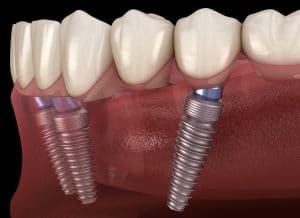 One of the most important goals of replacing one or more lost teeth is to restore the healthy appearance of your smile. Another is to reestablish your bite’s full ability to function properly. In many cases, traditional tooth replacement options (such as bridges and dentures) can help you accomplish both of these goals with a highly level of cosmetic realism. However, many of the more important roles of your healthy, natural teeth revolve around the roots that support them. When you experience tooth loss, only dental implants can replace these roots, allowing them to restore more of your bite function and oral health than conventional restorations can. (more…)
One of the most important goals of replacing one or more lost teeth is to restore the healthy appearance of your smile. Another is to reestablish your bite’s full ability to function properly. In many cases, traditional tooth replacement options (such as bridges and dentures) can help you accomplish both of these goals with a highly level of cosmetic realism. However, many of the more important roles of your healthy, natural teeth revolve around the roots that support them. When you experience tooth loss, only dental implants can replace these roots, allowing them to restore more of your bite function and oral health than conventional restorations can. (more…)
Is It Actually Possible to Prevent Tooth Loss?
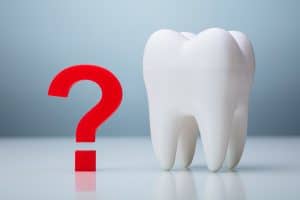 For some people, the fact that tooth loss is preventable can be surprising. It occurs frequently enough that many people can mistake it as something that everyone will eventually have to face. However, the truth is that most cases of tooth loss occur because of an underlying problem that could have been addressed earlier, or prevented altogether, with proper dental care and maintenance. For the majority of tooth loss cases, prevention is highly possible, which means you have a good chance of avoiding it if you haven’t already experienced it. (more…)
For some people, the fact that tooth loss is preventable can be surprising. It occurs frequently enough that many people can mistake it as something that everyone will eventually have to face. However, the truth is that most cases of tooth loss occur because of an underlying problem that could have been addressed earlier, or prevented altogether, with proper dental care and maintenance. For the majority of tooth loss cases, prevention is highly possible, which means you have a good chance of avoiding it if you haven’t already experienced it. (more…)
Is There a Way to Save Your Wisdom Teeth?
 When any of your other teeth experience a problem, such as being damaged or forced out of alignment, there’s often a viable solution for addressing the issue and saving the tooth. However, this isn’t always the case with your third molars, or wisdom teeth. When it comes to your wisdom teeth, the most common problem is impaction, meaning the molar doesn’t enough space to erupt from your dental ridge properly. There may not be a way to save the tooth, but fortunately, you can avoid further problems by extracting your wisdom teeth, and removing them won’t negatively impact your oral health or bite function. (more…)
When any of your other teeth experience a problem, such as being damaged or forced out of alignment, there’s often a viable solution for addressing the issue and saving the tooth. However, this isn’t always the case with your third molars, or wisdom teeth. When it comes to your wisdom teeth, the most common problem is impaction, meaning the molar doesn’t enough space to erupt from your dental ridge properly. There may not be a way to save the tooth, but fortunately, you can avoid further problems by extracting your wisdom teeth, and removing them won’t negatively impact your oral health or bite function. (more…)
When Waiting to Extract a Tooth Is a Bad Idea
 With most oral health treatments, waiting to undergo treatment isn’t a good idea. The nature of most oral health concerns is progressive, and the longer you wait to address them, the more complicated it can become to successfully address them. When your dentist or oral health specialist recommends tooth extraction to address your concern, it often means that your condition is severe, and the tooth cannot be saved by any other means. Today, we examine three reasons why extracting a tooth might be necessary, and how waiting could make each condition worse. (more…)
With most oral health treatments, waiting to undergo treatment isn’t a good idea. The nature of most oral health concerns is progressive, and the longer you wait to address them, the more complicated it can become to successfully address them. When your dentist or oral health specialist recommends tooth extraction to address your concern, it often means that your condition is severe, and the tooth cannot be saved by any other means. Today, we examine three reasons why extracting a tooth might be necessary, and how waiting could make each condition worse. (more…)
When Correcting Your Jawbone Requires Surgery
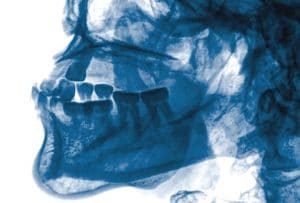 The realm of oral surgery isn’t somewhere everyone needs to go in the course of their oral health care. Surgical treatments are typically reserved for extreme and/or complex oral health conditions that can’t be addressed with general dental care and restorative measures. When surgery with an expert is recommended, it’s typically to address a specific concern that may require highly involved, precise surgical correction. For example, in the case of jawbone surgery, your treatment may be designed to recover from a traumatic injury, correct a congenital malformation, fortify a weakened part of its structure, or more. (more…)
The realm of oral surgery isn’t somewhere everyone needs to go in the course of their oral health care. Surgical treatments are typically reserved for extreme and/or complex oral health conditions that can’t be addressed with general dental care and restorative measures. When surgery with an expert is recommended, it’s typically to address a specific concern that may require highly involved, precise surgical correction. For example, in the case of jawbone surgery, your treatment may be designed to recover from a traumatic injury, correct a congenital malformation, fortify a weakened part of its structure, or more. (more…)
Factors that Could Contribute to You Losing Teeth
 Tooth loss isn’t always as clear-cut as it seems, and many people who experience it may have been able to prevent it if they addressed their specific risk factors sooner. The problem with losing a tooth is that it won’t grow back, and replacing it can only go so far in helping you regain your bite’s full function. Fortunately, it’s easier today than ever for people to understand what specific factors could contribute to their tooth loss in the future. They also have many options for addressing them in order to save and preserve their healthy, natural smiles. (more…)
Tooth loss isn’t always as clear-cut as it seems, and many people who experience it may have been able to prevent it if they addressed their specific risk factors sooner. The problem with losing a tooth is that it won’t grow back, and replacing it can only go so far in helping you regain your bite’s full function. Fortunately, it’s easier today than ever for people to understand what specific factors could contribute to their tooth loss in the future. They also have many options for addressing them in order to save and preserve their healthy, natural smiles. (more…)
Do You Need to Prepare for Dental Implants?
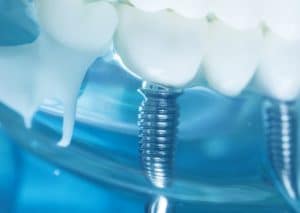 Losing teeth isn’t as big of a problem these days as it used to be in the past. Not only are more people able to avoid tooth loss thanks to more advanced dental care, but recovering from tooth loss is also much more successful. This is largely thanks to the advent of dental implants, which are designed to replace your lost teeth roots and support your restoration in a similar manner. This ability gives dental implants a number of advantages when it comes to restoring your smile, and their biocompatibility makes them a good option for patients who experience to any degree. (more…)
Losing teeth isn’t as big of a problem these days as it used to be in the past. Not only are more people able to avoid tooth loss thanks to more advanced dental care, but recovering from tooth loss is also much more successful. This is largely thanks to the advent of dental implants, which are designed to replace your lost teeth roots and support your restoration in a similar manner. This ability gives dental implants a number of advantages when it comes to restoring your smile, and their biocompatibility makes them a good option for patients who experience to any degree. (more…)
Why Are Wisdom Teeth a Problem for Many People?
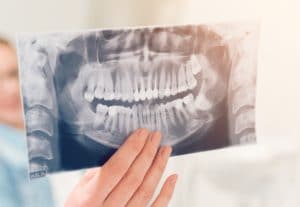 Most of the concerns that your smile might face can either develop as a result of inadequate hygiene and bacterial buildup, or an underlying concern that you might not be able to prevent. The problem with wisdom teeth, or third molars, is that the concerns they can cause when they become impacted aren’t exactly preventable. Wisdom tooth impaction can affect anyone who develops a third set of molars, and when it does, surgically extracting the impacted tooth structure could be the only viable solution. (more…)
Most of the concerns that your smile might face can either develop as a result of inadequate hygiene and bacterial buildup, or an underlying concern that you might not be able to prevent. The problem with wisdom teeth, or third molars, is that the concerns they can cause when they become impacted aren’t exactly preventable. Wisdom tooth impaction can affect anyone who develops a third set of molars, and when it does, surgically extracting the impacted tooth structure could be the only viable solution. (more…)


